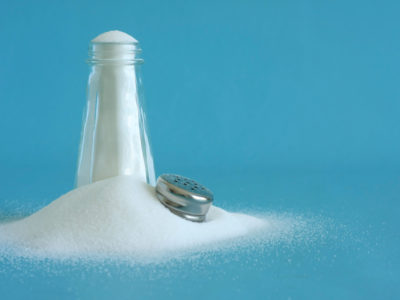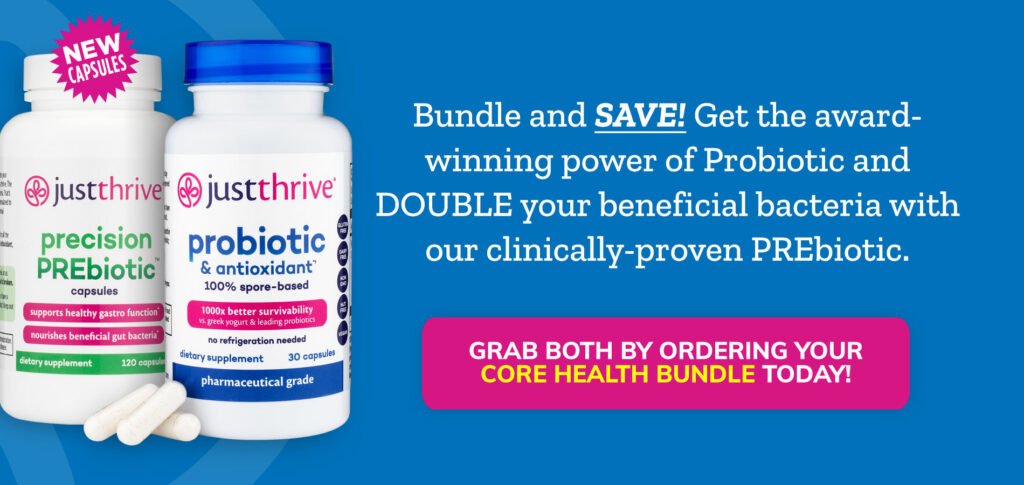Table of Contents[Hide][Show]
Give these healthy sugar alternatives a try to sweeten your food without the negative health effects of processed foods or additives.
Is Sugar Always Bad for Your Health?
Sugar is bad—a simple premise we can all get behind (until confronted with that giant chocolate chip cookie someone evilly left on the break room table at lunch, that is). But when you start thinking about it, it’s not so simple.
Doesn’t fruit have sugar? Are we not supposed to eat fruit – ever?
Or, how about agave nectar? That was all the rage for a while and then the hype sort of died down. What’s up with that?
What are the sugar alternatives? Or are we destined for a life of food without that sunny bit of sweetness? That’s a sad thought.
People love sweets and we need to have some viable alternatives. So, we consulted a few sugar experts to help us get a sense of the best (and worst) sweeteners and sugar alternatives.
Fructose is a natural sugar found in fruits, glucose is found in our blood, and sucrose or table sugar is obtained from sugar cane or sugar beets.
11 Healthier Sugar Alternatives to Use
In terms of what we should and shouldn’t be eating, Brodsky, Clinical Nutritionist Amanda Hayes-Morgan, and Holistic Nutritionist Mitra Shirmohammadi helped break down the natural sugar substitutes and low glycemic sweeteners, starting with the best sugar alternative:
1. Stevia
Stevia is a natural sweetener with virtually no calories from the Stevia rebaudiana plant, and believe it or not, it’s quite sweet! Just make sure to get the pure, green leaf stevia.
This study showed that taking the stevia compound stevioside can lower blood pressure. During the two-year study, Chinese patients took the compound and saw a significant drop in their blood pressure.
Stevia is sweeter than cane sugar, and it has a unique flavor that some love and some hate. If you’re going to try it, give it a whirl in some green tea or as a natural sweetener additive in your smoothies to see what you think.
2. Monk Fruit
A zero-calorie sweetener that can be up to 200 times sweeter than sugar? Does such a thing exist?
It does, and it’s monk fruit, which comes from a vine known as Siraitia grosvenorii. This super fruit is full of healthy antioxidants and vitamins. You can use monk fruit sweetener in a variety of foods and drinks, such as coffee, yogurt, and fruits.
3. Raw, Unprocessed Honey
Hayes-Morgan says raw, unprocessed honey has high vitamin, mineral, and antioxidant content, and it can also strengthen your immune system. Some health experts also believe raw honey can help treat seasonal allergies and hay fever.
Feeling sleepy? It can also give you a boost of energy.
Additionally, raw honey has antibacterial, antifungal, antiviral, and anti-inflammatory properties, and it helps with digestion and skin issues, says Shirmohammadi. But, be careful, raw honey has a good amount of fructose, so a little goes a long way.
Whenever possible, buy raw honey from your local farmers market for best results.
4. Chicory
If you love the ritual of coffee but have to lower your caffeine intake, then you’ll love chicory. The calorie-free herb comes from the root of a perennial plant and can serve as a caffeine-free coffee substitute and natural sweetener.
Chicory root contains vitamins, minerals, soluble fiber, and antioxidants. Beyond that, the inulin in chicory root can help feed digestive flora, leading to a healthier microbiome.
On top of all that, chicory extracts may fight fungi in certain situations, according to this study.
Related
10 Foods To Add To Your Microbiome Diet
Nourish your gut with a healthy microbiome diet. Incorporate these 10 foods into your meals starting today!
5. Xylitol and Erythritol
These are sugar alcohols found in some foods labeled as “sugar free” or “no sugar added.” They have fewer calories than sugar and can have less of an impact on blood sugar levels than other carbs.
6. Vanilla
There is something about vanilla that tastes so good. Whether it’s a scoop of vanilla ice cream or a vanilla latte, the flavor makes our taste buds go wild.
That’s not all. Along with adding flavor, vanilla extract—the non-artificial kind, that is—does wonders for our health. Not only does vanilla extract contain antioxidants, but it can also calm nausea, regulate menstruation, boost metabolism, and calm your anxiety.
7. Maple Syrup
No, we’re not talking about the syrup you drown your pancakes in; those are processed syrups full of added sugars. Opt for pure maple syrup because it contains a bunch of antioxidants and minerals, including zinc and calcium, Hayes-Morgan says.
For best results, look for Grade B, dark-colored maple syrup and Grade A dark amber versions from Vermont or Canada. Read the food labels to tell the difference between pure maple syrup and imitation syrups. If you see corn syrup or high-fructose corn syrup on the ingredients label, stay away.
Maple Syrup can also potentially boost your immune system and calm stomach issues. Who knew it had so much power?
In fact, a new study showed that maple syrup may help fight bacteria that cause diseases. The study found concentrated extracts of maple syrup paired with antibiotics reduced bacterial growth.
Keep in mind that pure maple syrup should be consumed in small amounts because of its high glycemic index, says Shirmohammadi.
8. Coconut Sugar
Coconut oil isn’t the only one with all the benefits. Meet coconut sugar, which comes from the coconut palm tree and is a low glycemic sweetener.
Coconut sugar also contains many minerals and vitamins, says Shirmohammadi. Get straight coconut sugar for best results.
9. Swerve Sweetener
Swerve sweetener is certified non-glycemic and non-GMO, has zero net carbs and zero calories, and comes in forms of confectioners and granules. This means this sugar substitute does not raise blood sugar levels.
This sweetener is made of natural ingredients that include natural flavor, oligosaccharides, and erythritol. Erythritol has a lesser impact on blood sugar levels, as mentioned previously.
Oligosaccharides are carbohydrates with a sweet taste and are naturally found in starchy veggies and fruits.
They are prebiotic fibers that the body cannot break down, so they are considered calorie-free. They also pass through the digestive tract and promote the growth of good bacteria.
10. Date Sugar
This brown sugar replacement is healthier than regular sugar because dates are naturally rich in copper, magnesium, and potassium. Dates also give moderate amounts of vitamins B6 and B3, niacin, phosphorus, calcium, and iron—all of which are essential for the human body.
Date sugar also has antioxidant properties. In this study, more than ten types of natural sweeteners were compared for their antioxidant properties, and there were only two types that displayed a higher antioxidant capacity than date sugar.
Aside from its nutrients, date sugar looks a lot like brown sugar and can be used similarly as a healthier alternative to recipes that call for brown sugar
11. Yacon Syrup
This sweet syrup is taken from the yacon plant (Smallanthus sonchifolius) native to South America. It is thick in consistency and has a dark color, like molasses.
The syrup also contains 40% to 50% fructooligosaccharides, which are a special type of sugar molecule the body cannot digest. It also possesses one-third of the calories that regular sugar has.
One study showed that fructooligosaccharides can help decrease ghrelin, the hunger hormone, which can aid in suppressing your appetite, making you eat less. These sugar molecules also feed the good bacteria in the gut, which lowers the risks of disease development because the bad bacteria do not have the chance to grow.
It’s important to note though that consuming large amounts of this syrup can cause digestive discomfort, diarrhea, bloating, and excess gas. Another downside of yacon syrup is it is not ideal for baking or cooking because high temperatures can destroy the structure of fructooligosaccharides.
4 Sugar Alternatives You Should Avoid
Aside from the healthy sugar alternatives you can add to your diet, here are a few “unhealthy” sweeteners you should avoid, ranked from healthier to least healthy.
4. Agave Nectar
At one point, agave nectar was the “it” sweetener, but Hayes-Morgan says it has proven to be the opposite because of its high fructose level. It has more fructose than high-fructose corn syrup, which is what’s used most in sodas! It also has more fructose than any other “healthier” sweetener.
Not only does too much fructose raise your blood sugar, but it can make you annoyingly hungry and increase your cravings for sweets.
3. White Refined Sugar (Table Sugar)
White sugar and brown sugar can cause health problems such as heart disease and obesity. Another shocker: Sugar and cocaine have a similar chemical make-up, leading you to become addicted to anything sweet, says Hayes-Morgan.
Limit your intake of baked goods (as tempting as they may be), or use one of the substitutes at the top of our list.
2. High-Fructose Corn Syrup
Speaking of fructose, high fructose can be found in candy, soda, and processed sweets. High-fructose corn syrup is harmful to your health because it is artificially derived and contains dangerous chemicals, such as mercury.
Are you one of those people who drink a can of soda a day? Time to stop that habit. It turns out drinking one sugary drink a day increases your risk of developing non-alcoholic fatty liver disease.
But, don’t worry, fruits are safe to eat because they are different from the alternative, processed sweeteners that have fructose, says Hayes-Morgan. Go for fruits with a lower glycemic index such as berries, cherries, green apples, and grapefruits.
1. Artificial Sweeteners
Be careful with these sweeteners. Artificial sugars such as aspartame and Sucralose (known as Splenda) are found in diet sodas and diet foods, and they can be toxic to your body, Hayes-Morgan says.
Artificial sweeteners may lead to weight gain, metabolic syndrome, Type 2 diabetes, hypertension, and cardiovascular disease.
A new study also examines the dangers of aspartame and the link between diet drinks and cardiovascular issues. Researchers at the University of Iowa studied 60,000 postmenopausal women and found that women who had two or more diet drinks a day were 30% more likely to go through a cardiovascular event and 50% more likely to die from a related disease.
Final Thoughts
This list of sugar alternatives will provide you with a better overview of which sweeteners are best for you. Each of them can give various health benefits you can take advantage of. Now, you can satisfy your sweet tooth without compromising your health and wellness.
You May Also Like…
Editor’s Note: This post was originally published on February 26, 2019, and has been updated for quality and relevancy most recently on January 19, 2022.





